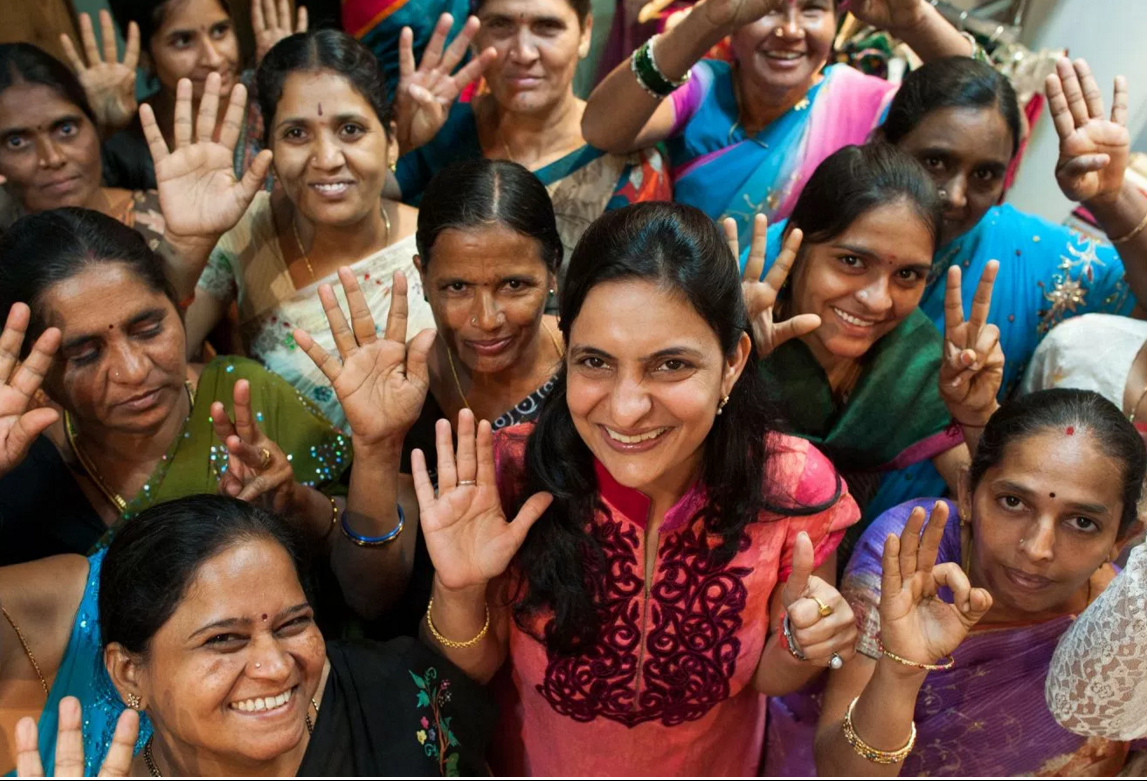It’s early on a Tuesday morning in rural Kenya, and Rose is helping her son and two daughters get ready for school. Soon she will join eight other women in her village to spend her day weaving intricate baskets committed for sale to a buyer in the U.S. and financed through a small microloan. She’ll return home at the end of her day to prepare an evening meal for her children and assure that their homework is completed. She feels so proud that her income is able to pay for their school fees, uniforms and supplies, and give them a chance for a better future.
 At the Cordes Foundation, which my husband Ron and I created in 2006, one of our primary focus areas is providing economic opportunities for women globally. This includes the support of artisan cooperatives and microfinance initiatives helping millions of women like Rose.
At the Cordes Foundation, which my husband Ron and I created in 2006, one of our primary focus areas is providing economic opportunities for women globally. This includes the support of artisan cooperatives and microfinance initiatives helping millions of women like Rose.
As we have seen time and time again, providing economic opportunities for women changes not only their lives, but the lives of their children.
“Women who earn income are especially powerful catalysts for development because they tend to invest more of their income than men into the health, education, and well-being of their families,” according to McKinsey & Co. in their 2010 report The Business of Empowering Women. “Economically empowered women also tend to have greater control over their income, reproductive health, and improvements in their children’s lives.”
So how are we investing in women?
In addition to the organizations we support with our philanthropic grants, we believe that all of our investments must align with our values and our focus. This has led us over the past few years to apply what the Criterion Institute calls a “Gender Lens” to our investment portfolio, consciously seeking investments that empower women across the value chain.
[blockquote author=”Marty Cordes, co-chair, Cordes Foundation” pull=”pullleft”]This is how we are investing in this movement: placing our capital in support of companies and funds that value and support the empowerment of women and the critically important role women play in the growth of the global economy.[/blockquote]
While this includes initiatives like microfinance that provide direct capital access to women, our Gender Lens approach is applied much more broadly than to just the product or service a company delivers. Whether investing in public or private companies, both directly and through investment funds, we look for women leadership at the board, CEO, partner, and senior management level, company policies that support and promote women, and supply chains that promote and encourage women entrepreneurs. As Suzanne Biegel writes, there are many ways to conduct due diligence with a gender lens.
Examples from our Gender Lens portfolio include Women’s World Banking (WWB), where we were a seed investor in the first investment fund created by this global network of women-led microfinance organizations, which is managed by a female portfolio team. We’ve also invested in SOKO, a rapidly-growing jewelry company led by two extraordinary women entrepreneurs which provides global market access to over 1,000 primarily women artisans in Kenya.
In the public markets, we have invested in Gender Lens equity portfolios managed by Trillium Asset Management and Gender Lens fixed-income portfolios from Breckenridge Asset Management. In both cases, these firms have developed a series of metrics to evaluate publicly-traded companies based on their commitment to providing equal opportunities for women across the value chain. This includes evaluating the percentage women at the board and senior management levels, as well as gender-based pay comparisons and family leave policies.
But don’t get the wrong impression that because we are a foundation we are just looking at this through a social lens and not also paying close attention to the financial performance of our investments. Of course, the social impact is hugely important, but we also believe that better business practices that value and empower women will drive superior financial performance in the long run.
We have already seen this dynamic prove true in the performance of both our private debt investments (many of which have been in microfinance) and in our public-market investments as our team regularly evaluates them against their market benchmarks.
Our private equity funds and direct company investments, like WWB and SOKO, will take a few more years to fully play out, but we have every confidence based on the early results and the quality of the business models and leadership teams that we will not be disappointed here either.
Like other players in the field, such as Veris Wealth Partners, Wallace Global Fund, and Grand Challenges Canada, this is how we are investing in this movement: placing our capital in support of companies and funds that value and support the empowerment of women and the critically important role women play in the growth of the global economy.
[seperator style=”style1″]Disclosure[/seperator]
This post is part of the conversation around the new report, “The State of the Field of Gender Lens Investing” and is published in partnership with Criterion Institute. Join the conversation by sending your thoughts to [email protected].











